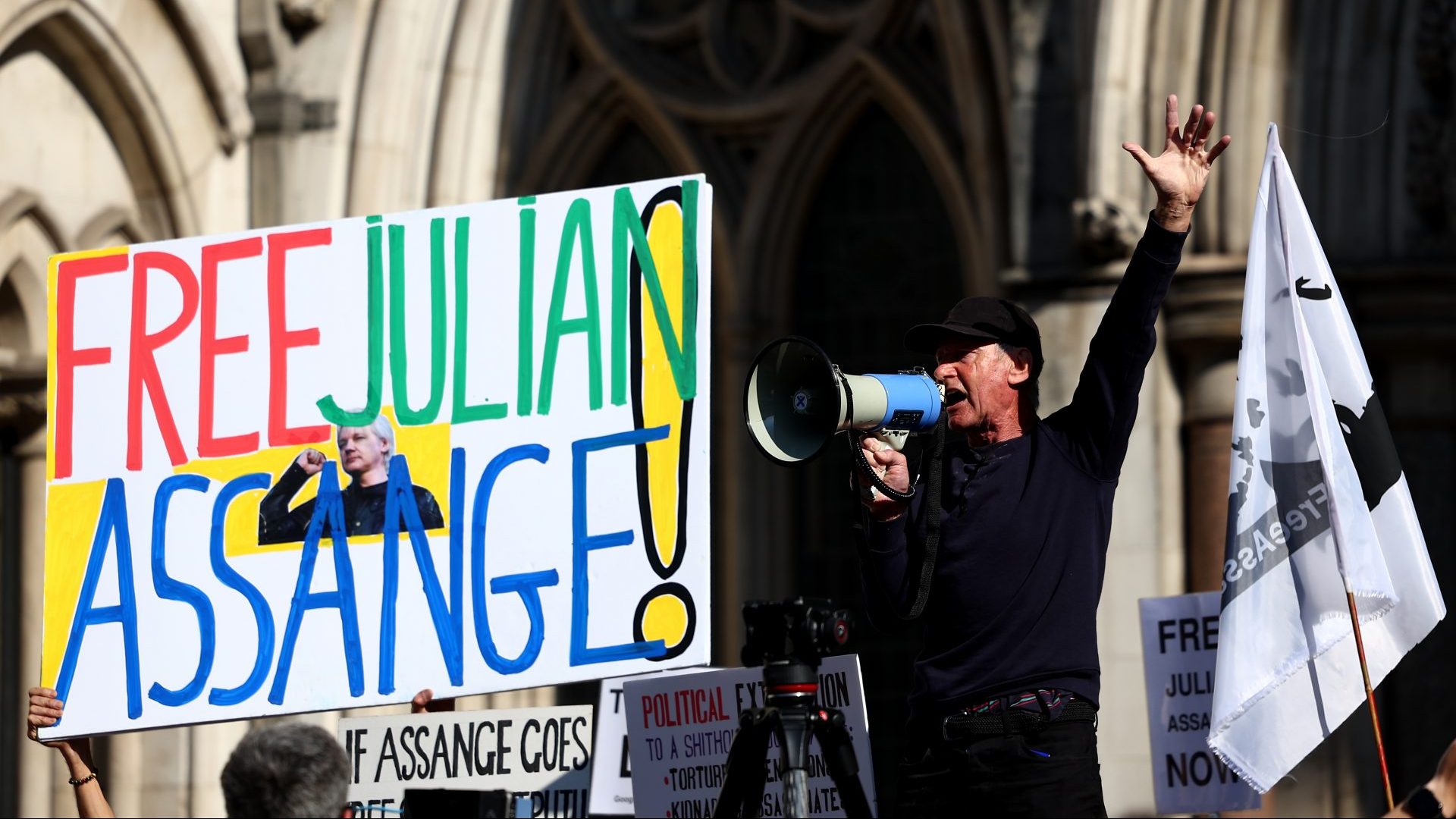Julian Assange will soon be free. The Wikileaks founder, for whom I worked as an in-house journalist in 2010, has accepted a deal that will see him plead guilty to violating US espionage law and will be sentenced to the time he has served on remand in a Belmarsh prison. He is reportedly already on his way home to his native Australia.
This is quite a moment for Assange and his supporters. The deal likely means an end to a complex tangle of legal cases that have followed him for 14 years. For the US Department of Justice, it is a chance to clean house and save face given that Assange’s sentence on these charges would likely be shorter than time served, further reducing the appetite to try him again.
A plea deal is something Assange would only agree through sheer necessity. The practical choice he faced after years in jail and years in the embassy before it was to take a ‘bad’ deal or face trial and detention in the USA. Expecting him to continue to fight the case on principle, when he’s detained and reportedly in poor health, would be unfair, whatever your view of him.
Many journalists – myself included – and many who are no fans of Assange said all along that this prosecution was a risk to press freedom. Part of his ‘crime’ was to publish on WikiLeaks under the title “Collateral Murder” a video leaked by then US soldier Chelsea Manning that showed the occupants of a US Apache helicopter, with the callsign “crazyhorse”, opening fire on a group of nine Iraquis and immediately killing eight of them. The crew, seen joking as if they were playing a video game, had apparently confused a Reuters journalist’s camera with an RPG, and acted to prevent the attack.
What came next was perhaps even more shocking: seeing the attack from the sky, the driver of a passing van stopped and got out to help the wounded. The crew were given permission to fire on him, too – killing him and injuring his two children, who had been in the car with him.
That video did not lead to any consequences for the helicopter crew, either for their apparently mistaken killings of civilians, nor for their utterly callous attitude as they did so. It did lead to two separate stints in prison for Manning, however – and threatened to keep Assange in jail for years.
Collateral Murder was far from the only thing Chelsea Manning and WikiLeaks brought to the public eye. Documents from the Afghan war revealed the presence of death squads, menacing civilians in their hunt for al-Qaida. Documents from Iraq shed new light on the enormous death toll of the 2003 invasion and subsequent civil war.
Perhaps most chillingly in my memory are the inmate records from the US’s detention centre in Guantánamo Bay. The public had been told, repeatedly, that the offshore prison – with its famously inhumane conditions – housed only the “worst of the worst” of the country’s enemies.
The records revealed a very different story: taxi drivers had been flown there for their knowledge of smuggling routes. Wearing a Casio N-91 watch was taken as a sign that someone was a terrorist, because that model had been used in some improvised bombs. It was also the most common watch in the world.
Most disturbing of all was the shipping to the prison camp of an 89-year-old man with double incontinence and advanced dementia. Reporters had revealed some of this before – but these documents still revealed much, and provided much-needed hard evidence to support public claims.
It is for these releases – published at the same time by four of the world’s best newspapers (the Guardian, Der Spiegel, the New York Times and Le Monde) as well as in part by The Bureau of Investigative Journalism (my current employer) – that Assange is facing trial.
Much of what Assange has done since the Manning leaks is ethically, morally and legally dubious. Some wonder whether his 2016 publication of hacked emails from the Hillary Clinton campaign was a deliberate and knowing collaboration with the Russian state, which hacked them, though no one has offered public evidence of such.
Others note that Assange later published the source code of CIA hacking tools, in effect giving cyberweapons to the world. Still others point out his shameful conduct in relation to a different extradition case – when Sweden sought him to answer for two credible allegations of rape, from women who had previously been his supporters.
It is not for any of these that the US was seeking Assange, though. They were prosecuting him for the publications listed above. This was a dangerous precedent for press freedom.
Assange has often made it difficult to take his side. None of that changes the strength of his moral case: his prosecution was dangerous and unjust.
Now it is over. Yet neither side can really call this a win. What a costly waste, in more ways than one, all this has been.










